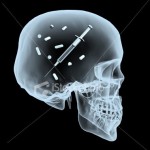Counseling and Addiction
Kicking the prescription drug abuse habit Ñ or any other addiction Ñ is a major accomplishment. But for most people with opioid addiction, detox is only the beginning of a long-term battle against craving and relapse.
Counseling is an essential part of drug abuse treatment for many people. Cognitive behavioral therapy, family counseling, and other therapy approaches can help people recovering from opioid addiction stay clean. Psychotherapy can also treat the other mental health conditions that often contribute to prescription drug abuse.
Why Counseling Is Important in Addiction Treatment
Opioid addiction is more than a physical dependence on drugs. Even after detox, when physical dependence is cured, addicts are at high risk for relapse. Psychological and social factors such as the following are often powerful stimuli for alcohol and drug abuse relapse:
Stress, especially sudden life stresses;
Cues in the environment, like visiting a neighborhood;
Social networks, like spending time with friends who continue to use drugs.
These factors can create ongoing, nearly irresistible urges to use drugs.
Prescription drug abuse counseling helps addicts escape craving and learn to cope with life, without using drugs.
Several counseling therapies are available for prescription drug abuse. Likewise, no one approach is appropriate for everyone with opiate addiction. The right drug abuse treatment plan is tailored to a personÕs addiction and his or her individual needs.
Individual vs. Group Therapy
While any counseling therapy for drug abuse treatment is better than none, group therapy is generally preferred over individual therapy. In group therapy, a person is more likely to be both challenged and supported by peers who are also going through drug rehab.
Individual therapy can be helpful in the case of a dual diagnosis: coexisting depression, bipolar disorder, or other significant mental health condition that requires treatment in its own right, separate from the opioid addiction.
Outpatient vs. Residential Treatment
Residential therapy allows the addicted person to temporarily escape the environment that allowed him or her to use drugs. A person goes away to a specialized facility for a period of weeks to months. While highly effective in the short term, there is debate as to whether residential programs lead to longer abstinence from prescription drug abuse than outpatient programs. Residential drug abuse treatment programs are expensive, usually costing tens of thousands of dollars.
Outpatient treatment programs are the usual setting for ongoing prescription drug abuse treatment.
Cognitive Behavioral Therapy
Cognitive behavioral therapy Ñ or CBT Ñ teaches a person how to recognize moods, thoughts, and situations that cause drug craving. A therapist helps the person avoid these triggers, and replace negative thoughts and feelings with ones that are healthier.
The skills learned in cognitive behavioral therapy can last a lifetime, making it a potentially powerful method of drug abuse treatment. However, not all therapists are trained in cognitive behavioral therapy techniques, which can be complex.
Contingency Management Therapy
In contingency management therapy, a person in drug abuse treatment receives positive incentives for staying clean. Vouchers for goods and services, or privileges in a more rigid treatment setting are common incentives. Contingency management therapy is effective in drug rehab studies. But skeptics point out its high costs, and that when incentives stop, its positive effects decline.
Traditional therapies for drug abuse treatment involved confrontation. Addicts are masters of denial, the thinking went, and therapy should break down walls to force them to accept the reality of their addiction.
While confrontation may still have a role, many therapists instead promote motivational interviewing, a newer counseling method. In motivational interviewing, a therapist seeks to understand and enhance an addicted personÕs natural motivation for change. For example, if the person reveals he is motivated by love of his family, or returning to work, these may become the focus of therapy.
Couples and Family Therapy
Prescription drug abuse and opioid addiction donÕt only affect the userÕs life; the whole family is transformed. Strong relationships with family and friends are essential for successful drug abuse treatment. Various counseling methods include the spouse and other family members of the addicted person.
There are several potential benefits of family or couples therapy:
Family members can act as a powerful force for change in the addicted personÕs life.
Including family members can increase the likelihood a person will stay in therapy.
Each family member can begin to heal the damage their loved oneÕs addiction has caused in their own life.
Studies show family therapy results in lower relapse rates, increased happiness in the family, and better functioning in children of addicted parents.
Most experts today consider opioid addiction to be a chronic, relapsing illness. Just like other chronic illnesses such as diabetes or high blood pressure, opioid addiction treatment in some form must be lifelong.
Many people with opioid addiction will continue to take maintenance therapy in the form of methadone or SuboxoneÊ(buprenorphine/naloxone), sometimes for decades. By the same token, experts say, they should also continue some form of counseling.
This idea runs counter to traditional views of drug rehab, in which a person was considered ÒcuredÓ after a relatively short period in treatment. However, evidence is mounting that lifelong treatment with counseling, maintenance therapy, or often both, should be standard drug abuse treatment for most people with relapsing opioid addiction.
Excerpted from WebMD
Related Articles
- Longer-lasting options to treat drug addiction (seattletimes.nwsource.com)